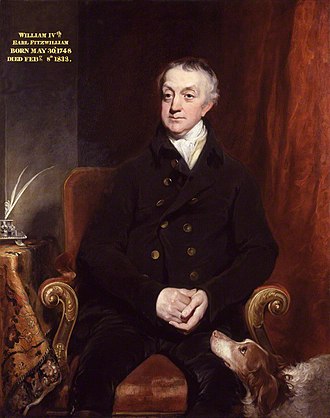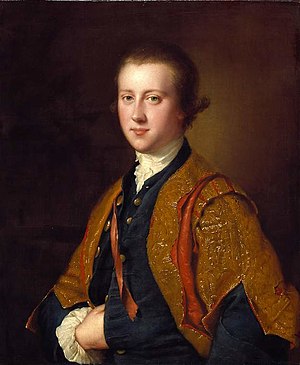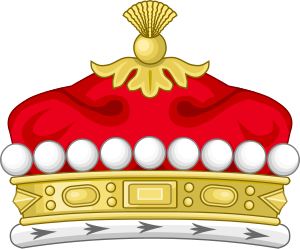Fitzwilliam Last Name Origin, History, and Meaning
Where did the surname Fitzwilliam come from? What does the surname Fitzwilliam mean? Discover the history and meaning of the last name Fitzwilliam and family migration on YourRoots Map.
Surname Fitzwilliam Origin: What does the last name Fitzwilliam mean?
The surname Fitzwilliam, derived from the Anglo-Norman prefix Fitz meaning "Son of" and the old Germanic name William meaning "Willpower/Desire Protector", originated in England around the early 11th century. It became popular in the English language after the Norman conquest of England in 1066 and remained closely associated with England from the 11th to the 15th centuries. YourRoots data shows that the Fitzwilliam surname also has records in countries like France, indicating a global spread over the centuries.
YourRoots data confirms the presence of the Fitzwilliam surname in the United Kingdom since the early 11th century, with a significant increase in records in France by the 21st century. The surname Fitzwilliam is prominent in countries like France, the United States, Australia, Canada, and Ireland, reflecting its enduring presence and global reach. Overall, the Fitzwilliam surname signifies a lineage of being the "Son of William" and carries a rich history that has transcended borders and cultures over time.
Fitzwilliam Last Name History: Where did the last name Fitzwilliam come from?
Origin of Fitzwilliam Surname: Where does the last name Fitzwilliam originate from?
According to YourRoots data, the surname Fitzwilliam first appeared in records from England around the early 11th century. Please note that this reflects only YourRoots data for the exact Fitzwilliam spelling and does not include other record sources or surname variations.
History of the Last Name Fitzwilliam: What does the Fitzwilliam surname history look like in the early days?
The Fitzwilliam surname remained closely associated with England from the 11th to the 15th centuries. YourRoots data also shows Fitzwilliam family records in countries like France, indicating global spread over the centuries.
Global Spread: Where can we find the Fitzwilliam surname today?
By the 21st century, the volume of records with the Fitzwilliam surname grew significantly in France. The Fitzwilliam surname remains prominent in England. It appears in many countries, including France, United States, Australia, Canada, and Ireland.
Explore Fitzwilliam last name heritage and Fitzwilliam surname origin based on YourRoots Map data
 VIEW THE ORIGIN OF SURNAME FITZWILLIAM
VIEW THE ORIGIN OF SURNAME FITZWILLIAMFamous People With Fitzwilliam Surame?

Wendy Fitzwilliam
Wendy Marcelle Fitzwilliam (born 4 Oct 1972) is a Trinidadian lawyer, model, actress, and beauty queen who made history as the second Miss Universe from Trinidad and Tobago. Known for her regal air and perfect evening gown presentation, she won the Miss Universe pageant in 1998, becoming the third woman of African heritage to do so. Fitzwilliam is also a Goodwill Ambassador for UNAIDS and UNFPA, dedicated to HIV/AIDS education. She continues to be active in various endeavors, from hosting television shows to promoting diversity in her native country and being a judge for beauty pageants.

Earl Fitzwilliam
William Wentworth-Fitzwilliam (July 25, 1872 – February 15, 1943) was the seventh Earl Fitzwilliam, a British politician known for his representation in Parliament as a Liberal Unionist. He was the grandson of the fourth Earl and inherited the title after the death of his father. Fitzwilliam was also involved in various social and political causes, serving as a Knight of the Garter and Lord Lieutenant of the West Riding of Yorkshire. His lineage included prominent figures in British history, and his contributions to public service left a lasting impact on his community.

William Fitzwilliam, 4th Earl Fitzwilliam
William Wentworth-Fitzwilliam, 4th Earl Fitzwilliam (30 May 1748 – 8 February 1833) was a British Whig statesman known for his wealth and political influence in the late 18th and early 19th centuries. Inheriting vast estates, including Wentworth Woodhouse, he became one of the richest landowners in Britain. Fitzwilliam played a prominent role in Whig politics, supporting causes like American independence. His interests extended to art and travel, collecting valuable paintings during his grand tours. Despite his substantial fortune, Fitzwilliam faced debts that he managed through estate sales. His legacy as a statesman and cultural patron endures, shaping British history during a transformative period.

Richard FitzWilliam, 7th Viscount FitzWilliam
Richard FitzWilliam, 7th Viscount FitzWilliam (1 Aug 1745 – 4 Feb 1816) was an Anglo-Irish nobleman known for founding the Fitzwilliam Museum in Cambridge, England, and serving as a Member of Parliament for Wilton. He was also a significant urban developer, shaping part of south-east Dublin in the Georgian style. FitzWilliam lived mainly at FitzWilliam House in Richmond, Surrey, where he amassed a large art collection. Despite never marrying, he had a six-year romance with French Opera dancer Marie Anne Bernard. His legacy as a benefactor, politician, and cultural patron endures through his contributions to art, politics, and urban planning.

Viscount FitzWilliam
Viscount FitzWilliam (1581–1650) was an Irish title holder in the Peerage of Ireland. The family owned large estates in Dublin, becoming one of the dominant families in the area. The titles passed through generations until the ninth Viscount's death in 1833. Known for their Dublin estates and Mount Merrion House, the FitzWilliam family left a lasting legacy in Irish history.
All images displayed on this page are sourced from Wikipedia or Wikimedia Commons.We use these images under their respective Creative Commons or public domain licenses. Wherever applicable, author attributions and license information are provided. If you believe an image is used incorrectly or outside its license terms, please contact us so that we can review and correct the issue.




.png)